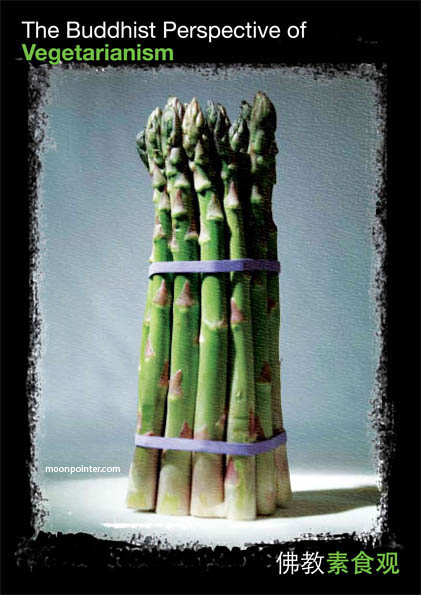
|
Thursday, 27 October 2011
在朋友那兒听说 知心的你曾回来过 想请他替我向你问候 只为了怕见了说不出口 你对以往的感触还多不多 曾让我心碎的你 我依然深爱著 在朋友那兒听说 知心的你曾找过我 我要他帮我对你隐瞞 只是怕见了面会更难过 我对以往的感触还那么多 曾给我幸福的你 我依然深深爱著 有一种想见不敢见的伤痛 有一种爱还埋藏在我心中 我只能把你放在我的心中 这一种想见不能见的伤痛 让我对你的思念越来越浓 我却只能把你把你放在我心中 对你的声音 你的影 你的手 我发誓说我没有忘記过 而关于你选择了现在的他 我只能说我有些难过 我也真心真意的等过 听说爱情回来过-林忆莲 词曲:李思菘 专辑:LOVE, SANDY 发行:1995年 非常经典的一首歌,或许年轻一代的不知道这首歌是蔡依琳翻唱的,彭佳慧在2000年也翻唱过, 原唱是林忆莲在1995发行的LOVE, SANDY专辑。其实蔡依琳是唱的不错,只是林忆莲把这首歌 诠释得太好了,似乎无可超越了。杨宗纬在2007年的星光大道也唱过这首歌而受好评。 要唱好这首歌的难度还是比较高的,主要是在情感的表达方面,Sandy完全演绎出了那种分手后 还是惦记着旧情人的心情,但是又已经肯定要放弃这段旧情的决心,也就是缠绵中带着坚持的感觉。 加上Sandy独特潇洒的嗓音,更让她能把这首歌的感觉带出来。 听了Sandy的现场演唱,更让我明白了她的实力。若单是听她演唱,是听不出来她在和歌迷互动。 能一心二用,又把歌曲唱得那么好的确不简单。 蔡依林的版本首先是找了林忆莲来独白。在这些年来,我觉得蔡依林的歌唱能力一直有在提升。 虽然在感情处理方面没有林忆莲版本的细腻,但是也有她自己独特的味道。 杨宗纬的版本也是很好,是所有版本最伤感,也比较多哭腔的。那个版本都好,最重要是能打动 你。我个人还是偏爱Sandy的版本。 0 comments dreamed of racing on 12:29 pm <-------------------------------------------------------> Monday, 24 October 2011 月里嫦娥月里家,凤凰展翅走天涯 天涯海角常相忆,宇内新开并蒂花 0 comments dreamed of racing on 9:47 am <-------------------------------------------------------> Friday, 21 October 2011
第一次听到张宇唱这首《张三的歌》是在2009年的《星光大道》。我觉得他唱得太好了, 甚至比原唱者李寿全还要好。突然很怀念所以去youtube找了一下。 0 comments dreamed of racing on 5:23 pm <-------------------------------------------------------> Monday, 17 October 2011 read this quite some time ago, and can't rem if i posted it up before.. anyway, i came across it again and everyone can be as intelligent as the husband..  A boy was born to a couple after eleven years of marriage. They were a loving couple and the boy was the apple of their eyes. When the boy was around two years old, one morning the husband saw a medicine bottle open. He was late for work so he asked the wife to cap the bottle and keep it in the cupboard. The mother, preoccupied in the kitchen, totally forgot the matter. The boy saw the bottle and playfully went to the bottle and, fascinated with its color, drank it all. It happened to be a poisonous medicine meant for adults in small dosages. When the child collapsed, the mother hurried him to the hospital, where he died. The mother was stunned. She was terrified how to face her husband. When the distraught father came to the hospital and saw the dead child, he looked at his wife and uttered just four words. What do you think were the four words? The husband just said "I Love You Darling" The husband's totally unexpected reaction is proactive behavior. The child is dead. He can never be brought back to life. There is no point in finding fault with the mother. Besides, if only he have taken time to keep the bottle away, this will not have happened. No point in attaching blame. She had also lost her only child. What she needed at that moment was consolation and sympathy from the husband. That is what he gave her. Sometimes we spend time asking who is responsible or who to blame, whether in a relationship, in a job or with the people we know. We miss out some warmth in human relationship in giving each other support. After all, shouldn't forgiving someone we love be the easiest thing in the world to do? Treasure what you have. Don't multiply pain, anguish and suffering by holding on to forgiveness. If everyone can look at life with this kind of perspective, there would be much fewer problems in the world. Take off all your envies, jealousies, unwillingness to forgive, selfishness, and fears and you will find things are actually not as difficult as you think... 0 comments dreamed of racing on 9:53 am <-------------------------------------------------------> Wednesday, 12 October 2011 Eternity When all images have disappeared at the subtle level, the dying person arrives at eternity. Eternity is the source of the soul. The rishis say that at last illusions have ended and reality begins. The fact that we can’t see eternity while we’re alive, as it extends in all directions around us, is a limitation the rishis strove to overcome. The more boundless your vision, the more real you are. As inspiring as this sounds, it also makes us uneasy, for we are used to living inside boundaries. As you get closer to eternity, you won’t experience being dead or alive. You won’t be male or female. A moment will be the same as a century, and before will merge with after. Eternity gives you more freedom than the mind can conceive. The absence of images means you don’t need images anymore. The absence of loved ones means you don’t need relationships anymore. You are back at your source, but with a difference. You’ve experienced it all. Creation has shown you everything. The mind we possess now may recoil, thinking that this must be the ultimate nightmare. But the rishis, who called this stage Moksha, or liberation, celebrated it. Only the liberated soul can choose anything. There is no tug up or down, and the whole mechanism of pleasure and pain grinds to a halt. What would it feel like to find yourself free? Boundless? Nameless? If you try to apply any word to the eternal soul – good, holy, loving, truthful – the rishis respond with “netti,” the Sanskrit word for “not that.” In fact, in some schools of Vedanta, the spiritual path is called “netti, netti,” by which you keep repeating “not this, not this,” until by a process of stripping away you arrive at essence. That’s also what the afterlife journey is about. The dying person realizes, step-by-step, “This used to be me, but it’s not anymore.” Adapted from Life After Death: The Burden of Proof, by Deepak Chopra (Harmony Books, 2006). 0 comments dreamed of racing on 12:24 pm <-------------------------------------------------------> Wednesday, 5 October 2011 Compassion For Your Enemy The Dalai Lama, the spiritual leader of Tibet, winner of the Nobel Peace Prize, and probably the world’s most beloved and famous meditator. While he is known for bringing attention to the plight of the Tibetan people and his pacifist attitude toward the Chinese, it is less well known that he rises at four a.m. each day to meditate for at least two hours. He recounts how a monk, who had been imprisoned by the Chinese for 18 years, told him that during his imprisonment there were many moments when he was in great danger. When the Dalai Lama asked what he was in danger from, the monk replied that he was in danger of losing his compassion for the Chinese, his captors. This illustrates how compassion is central to a Buddhists understanding of the meaning of existence. “By developing a sense of respect for others and a concern for their welfare,” says the Dalai Lama, “we reduce our own selfishness, which is the source of all problems, and enhance our sense of kindness, which is a natural source of goodness.” 0 comments dreamed of racing on 10:15 am <-------------------------------------------------------> Tuesday, 4 October 2011 If a tree falls in a forest, and no one is there to hear it, is there a sound?' I once asked a friend this classic philosophical and koan-like question through a text message. A few moments later, he replied, 'I heard it while thinking about it.' I responded, 'But I already said there was no one there to hear it. Why did you put yourself there?' Perhaps this is a trick question that cannot be answered properly with the thinking mind, not unlike trying to 'not think of a pink elephant'! When my friend read the question, he 'heard' the 'sound', as his mind moved accordingly to make sense of it by thinking. This is not unlike the case of Zen Master Huineng, who resolved an argument between two monks on whether it was a flag or the wind that was moving – by saying that it was their minds that moved. Movement is so only when perceived by the mind, just as a sound is so only when registered by the mind through hearing. The mind is the prime 'mover' of experience, with which we perceive and process sensory inputs. Does this mean that there was no sound of the falling tree, that the flag and wind did not move at all? Surprisingly, the answer is a definite 'yes'! A sound is so only when air vibrations reach one's ears. Since there was no one to receive the vibrations, they were not translated to be sound by anyone. Likewise, movement in space and time is defined as so only when there is perception of displacement. And to do so, one's perception has to be displaced from stillness – to move. If my friend's mind did not move, he would not hear a mind-made sound. Similarly, sight is sighted only when light falls upon eyes, smell is smelt only when smelling, taste is tasted only when tasting, touch is a sensation only when touching, thought is thought only when thinking. The world perceived through the senses exists only when sensed. As our sense faculties differ from one to another, though this world is one, it is experienced differently (but sometimes similarly), subjectively and dependent on our karma and perception. This does not mean that the world does not exist if there is no one to perceive it. An objective world exists beyond our limited senses corrupted by misperception. This means it is quite pointless to argue over relative experiences such as whether a sight is beautiful or ugly, or whether a sound is loud or soft, as these would depend on our varying sensitivities and preferences (attachment and aversion). Also, some beings have less senses, and some with more refined senses. In insight meditation, the thinking mind is silenced, so as to realise the nature of reality by direct non-judgemental mindfulness of whatever transpires. Naked reality is that seen without movements of the mind, which would blur the perception of things as they really are. Direct and pure experience through the senses is enabled. The more silent you are, the more accurately defined will reality be known and seen, without imposition or supposition. Our mind and the world are connected as one like the ends of a single line, dual as the perceiver and the perceive but really one, without real division of 'self' from the world. The perceiver perceived as a separate 'self' impairs perception, and is an illusion. It blocks and taints clear perceiving of reality. Meditation helps to dissolve this illusion, by perceiving the workings of perceiving itself, by realising that there is only perceiving without any perceiver. When we truly realise this, we attain the 'beginner's mind' as taught in Zen, that is able to respond instantly, appropriately and selflessly to all experiences without needless mental proliferations based on the illusion of 'self'. Free from this delusion, we will be able to be fully absorbed, engaged in whatever we are experiencing and doing. This is authentic enlightened living! If this world perceived with delusion seems 'real', a Pure Land without delusion is even more real. - Anonone 0 comments dreamed of racing on 4:00 pm <-------------------------------------------------------> Monday, 3 October 2011 Joke of The Month Psychiatric Evaluation The teenage boy seemed placid as I approached his hospital bed to give him a psychiatric evaluation. His mother was seated nearby, immersed in her knitting. I walked over and introduced myself to the boy. He looked right through me and started screaming: “I can’t see! I can’t see!” I had never witnessed such a dramatic example of hysterical blindness. “How long has this been going on?” I asked his mother. Without looking up, she replied, “Ever since you stepped in front of his television.” 0 comments dreamed of racing on 4:45 pm <-------------------------------------------------------> Communication: The Foundation of Strong Relationships “The most important thing in communication is hearing what isn’t being said.” -Anonymous The strength and endurance training in any and all relationships starts and ends with the capacity for communication. I have often called our communication skills the currency of a relationship, because it is literally the air that lives between people that makes their relationship vital or suffocating. It is perhaps the most complex set of skills that healthy relationships require because it is close to impossible to speak in such a way that you cannot be misunderstood. This is not only because our spoken words make up only a small fraction of the myriad ways we communicate. We also communicate through our tone of voice, facial expressions and body language. The biggest complication is that we often communicate without fully understanding the needs, desires and judgments we are expressing. It is no wonder that communication issues are frequently identified as the most challenging aspect of relating and the place where relationships falter. We stubbornly hang onto the belief that if we have expressed ourselves clearly, the communication is made. This belief overlooks the fact that other people can only hear you when they are moving towards you, which is usually not happening when they feel like they are being pursued by your words. The healing revelation in relationships occurs when we recognize that the most powerful experience in communicating happens through listening and not expression. Learning to listen is not an easy skill to develop and is arguably in short supply in many relationships and even in life itself. To listen well we must begin by recognizing that the most important thing we give to someone we love is our full attention, free of judgment and expectation. We must be willing to open to the loving silence which real listening requires. Cultivating this internal quiet slows down the interaction so that you hear not just the words, but the meaning behind them. Communication transforms into connection when we listen not for what someone knows but for who they are. This kind of communication is the moment our relationships create grace. It carries a truly magnetic current that pulls both people into full presence and allows both parties to unfold and know themselves and each other. Truth telling, even the most difficult truths are able to be expressed in the shelter of this being heard, which is so similar to being loved that most people can’t tell them apart. The following story has many classic communication issues. Which can you identify? How do the communications get crossed between them? How do they misinterpret this miscommunication? Where is the breakthrough? Jenny didn’t hear her voice getting louder the way Mark did. He never raised his voice and went from annoyed to stony in a matter of minutes when Jenny’s requests got loud. She had grown up in a house where people yelled all the time. At good moments between them, they laughed at what a cruel trick their marriage was - they couldn’t have been any more different… But more often their arguments took more of their attention. In truth they had never really understood how to talk to each other. They shared a simmering attraction and deep tenderness for each other but their communication was usually a mess. Jenny would ask Mark to do things with her around the house and invite him to do special things like drive to the beach. She was convinced she was clear, but it seemed like almost every plan she envisioned with him went a different way. He would show up late with the paint and with the wrong color or invite his best friend to come to the beach with them. Mark usually had no idea that Jenny was frustrated. He thought she was just moody. Each time she communicated the edge between them seemed to grow in her mind. Even small requests like taking out the garbage or picking up dinner started with an elevated tone that Jenny didn’t even hear and that sent Mark further away from her. Mark’s retreat only confirmed for Jenny that he never listened to her or even cared about what she said. For his part, Mark just was trying to stay out of the line of fire, as it seemed to him, he couldn’t do anything right. One evening, Jenny broke down in the kitchen after a particularly painful argument. She felt terrible about the mean things she had said to Mark, but she wanted to hurt him the way she felt hurt and abandoned. She sat crying with her head in her hands. Mark sat down next to her. Neither one spoke. The silence between them softened and Mark put his hand on her leg. Jenny looked up and saw him holding her in his gaze with no malice. He said, “I am not trying to hurt you, really. I guess I don’t know how to listen to you.” Jenny cried harder and leaned into Mark’s chest. “I didn’t know how to tell you how much I wanted you to hear me.” She said. 0 comments dreamed of racing on 4:24 pm <-------------------------------------------------------> |
Racer: zfek 
一份情讓我們相知相惜 一份真摯的友誼,使我們成為永遠的朋友
                                      
 stare at the blank + in the center, what do you see?  do you see the dancer turning clockwise or anti-clockwise? "There are some people who meet that somebody that they can never stop loving, no matter how hard they try. I wouldn't expect you to understand that, or even believe it, but trust me; there are just some loves that don't go away. And maybe that makes them crazy, but we should all be lucky enough to end up with someone who has a little bit of that craziness. Someone who never lets go. Someone who cherishes you forever." - Ally McBeal unique moonlighters |